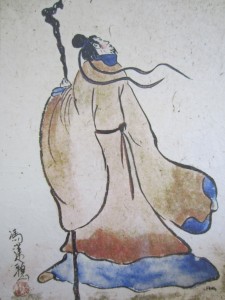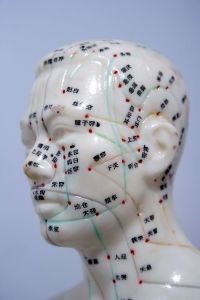What is Oriental Medicine?
Oriental Medicine developed from passive observation. Ancient Chinese theorized what structures were under the skin and how the body worked, with surprising accuracy. Early on, it was observed that tender spots exist on the body and that by stimulating them they have an effect on both the whole person and specific complaints. Disease was believed to be disharmony. The exposure of this medicine to the west is relatively new but has been practiced successfully as the dominant form of health care in the east for thousands of years.
Oriental Medicine dates back to the 3rd Century BC, with one of the oldest produced texts, the Huang Di Nei Jing, (The Yellow Emperor’s Classic of Medicine). This dynamic system has been practiced and modified for almost 4,000 years. Oriental Medicine has 3 main branches; acupuncture, herbs and massage.
Q: What conditions are commonly treated by Oriental Medicine?
A: Chinese Medicine treats the root, which is the cause of dis-ease, as well as the symptoms. When the root is not taken care of, symptoms will resurface over and over again. Investing in good health is a good investment. It is best to maintain good health and immunity before an illness strikes. Chinese Medicine works well in maintaining your health as well as boosting your energy, reducing stress, and resolving the setting in of minor illnesses such as a cold. Conditions that Chinese Medicine treats include, but not limited to:
Cardiovascular: Coronary Artery Disease (Angina Pectoris, Arteriosclerosis), High Cholesterol, Hypertension, Hypotension
Dermatological: Acne Vulgaris, Eczema, Herpes Zoster Simplex, Pityriasis Rosae, Psoriasis Tinea (Fungus Infection)
Dental and Oral: Periodontal disease, Toothache, TMJ, Ear Nose & Throat disorders, Earaches, Laryngitis, Meniere ’s disease, Rhinitis, Sinusitis, Tinnitus
Emotional: Anxiety, Depression, Stress-related disorders, Insomnia
Gynecological: Endometriosis, Fibroids, Infertility, Menstrual disorders, Menopause, Perimenopause, PMS
Musculoskeletal: Injuries of any kind, painfull conditions such as (but certainly not limited to) Back Pain, Carpal Tunnel Sydrome, Fibromyalgia, Gout, Knee Pain, Lateral Epicondylitis (Golfer’s elbow), Medial Epicondylitis (Tennis elbow), Neck Pain, Osteoarthritis, Periarthritis of the Shoulder, Rheumatoid Arthritis
Neurological: Migraine, Headaches, Multiple Sclerosis, Numbness, Paralysis, PTSD, Sciatica, Trigeminal Neuralgia
Respiratory: Allergies, Asthma, Bronchitis, Colds and Flu, Emphysema, Sinus and Ear Infections
Urogenital: Benign Prostatic Hypertrophy, Chronic Glomerulonephritis, Chronic Prostatitis, Chronic Renal Failure, Cystitis Stress, Incontinence, Urolithiasis, Weight Loss
Gastrointestinal: Colitis, Constipation, Diarrhea, Diverticulitis, Irritable Bowel Syndrome, Nausea and Vomiting, Peptic Ulcers


